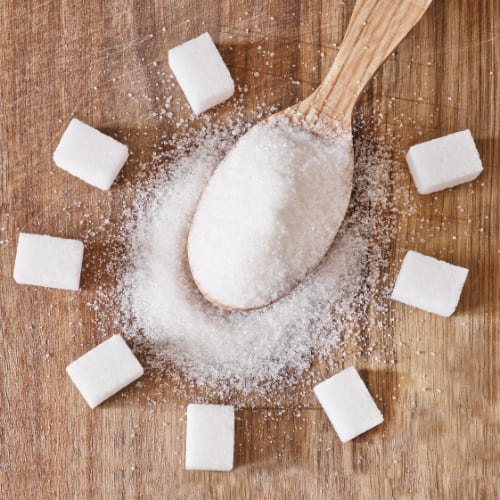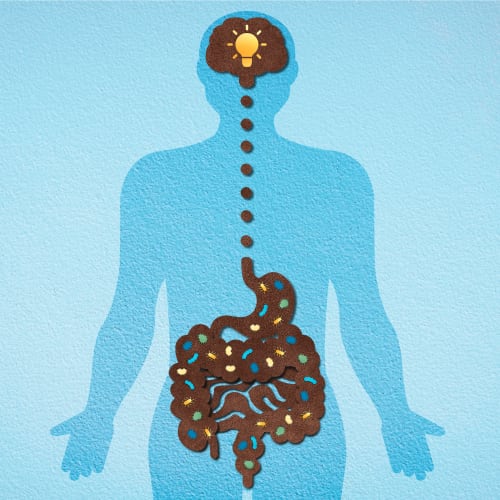 Sugar and Fructose: Understanding Their Impact on Health
Sugar and Fructose: Understanding Their Impact on Health
Sugar and Fructose: Understanding Their Impact on Health

-
Main Ideas
Learning Objective
Understand the health impacts of excessive sugar and fructose consumption and how to make healthier dietary choices.
Behavioral Objective
Reduce sugar and fructose intake by choosing whole foods and reading labels, ultimately promoting better health and preventing disease.
Key Thought
Excessive sugar and fructose intake can lead to serious health issues, but making mindful dietary choices can significantly improve overall well-being.
-
Main Ideas
Learning Objective
Understand the health impacts of excessive sugar and fructose consumption and how to make healthier dietary choices.
Behavioral Objective
Reduce sugar and fructose intake by choosing whole foods and reading labels, ultimately promoting better health and preventing disease.
Key Thought
Excessive sugar and fructose intake can lead to serious health issues, but making mindful dietary choices can significantly improve overall well-being.
-
Terms
- Fructose
noun
A natural sugar found in fruits and vegetables, but also added to many processed foods and sweetened beverages. Excessive consumption can lead to health issues like fatty liver disease and insulin resistance.
- Gout
noun
A form of arthritis characterized by severe pain, redness, and tenderness in joints, caused by the buildup of uric acid crystals. Excessive fructose consumption can increase uric acid levels and contribute to gout.
- Insulin Resistance
noun
A condition where the body's cells become less responsive to the hormone insulin, leading to high blood sugar levels. It is often associated with excessive sugar consumption and can increase the risk of type 2 diabetes.
- Non-Alcoholic Fatty Liver Disease (NAFLD)
noun
A condition characterized by an excessive accumulation of fat in the liver in people who drink little or no alcohol. It is often linked to high fructose intake and obesity, and can lead to liver inflammation and damage.
- Triglycerides
noun
A type of fat found in the blood. High levels can increase the risk of heart disease and are often elevated by excessive consumption of sugary foods and beverages.
-
Terms
- Fructose
noun
A natural sugar found in fruits and vegetables, but also added to many processed foods and sweetened beverages. Excessive consumption can lead to health issues like fatty liver disease and insulin resistance.
- Gout
noun
A form of arthritis characterized by severe pain, redness, and tenderness in joints, caused by the buildup of uric acid crystals. Excessive fructose consumption can increase uric acid levels and contribute to gout.
- Insulin Resistance
noun
A condition where the body's cells become less responsive to the hormone insulin, leading to high blood sugar levels. It is often associated with excessive sugar consumption and can increase the risk of type 2 diabetes.
- Non-Alcoholic Fatty Liver Disease (NAFLD)
noun
A condition characterized by an excessive accumulation of fat in the liver in people who drink little or no alcohol. It is often linked to high fructose intake and obesity, and can lead to liver inflammation and damage.
- Triglycerides
noun
A type of fat found in the blood. High levels can increase the risk of heart disease and are often elevated by excessive consumption of sugary foods and beverages.
Introduction
Sugar is a common ingredient in many foods and beverages. While its role in providing sweetness is undeniable, excessive consumption can lead to various health issues. But what exactly are these effects, and how does fructose, a type of sugar, influence our health?
Weight Gain and Obesity
One of the most significant effects of excessive sugar intake is weight gain, particularly in the abdominal area. High in calories, sugar contributes to an overall increase in calorie intake, often without providing essential nutrients. Furthermore, it can disrupt the body's ability to regulate blood sugar levels by causing insulin resistance. This condition impedes the body's use of insulin effectively, leading to increased fat storage and weight gain.
Increased Risk of Type 2 Diabetes
Consuming too much sugar is strongly linked to the development of type 2 diabetes. Excess sugar intake can lead to elevated blood sugar levels over time, contributing to insulin resistance. A study found that individuals with the highest sugar consumption had a 26% greater risk of developing type 2 diabetes compared to those with lower intake levels.1
Impact on Blood Sugar Levels
Sugar-induced insulin resistance makes it difficult for the body to manage blood sugar levels, a key factor in the progression to type 2 diabetes. This condition can develop quietly over time, often unnoticed until significant health issues arise.
Preventive Measures
To reduce the risk of type 2 diabetes, it is essential to limit sugar intake. Opt for foods with low sugar content and choose whole foods over processed options. These steps help maintain stable blood sugar levels and support overall health.
Heart Health Risks
High sugar consumption is also linked to poor heart health. It can elevate blood pressure, increase triglycerides, and raise LDL cholesterol levels, all risk factors for heart disease. Moreover, sugar contributes to chronic inflammation in the body, increasing the risk of cardiovascular problems.
Sugar and Cancer
Research indicates that high sugar intake may increase the risk of certain cancers. This link is primarily due to sugar's role in promoting inflammation and obesity, both of which are known risk factors for cancer development. Reducing sugar consumption can be an important step in lowering cancer risk.
Fructose: The Hidden Sugar
Fructose is a natural sugar found in fruits and vegetables but is also present in high quantities in processed foods and sweetened beverages. It's important to note the difference between natural fructose and whole fruits, which are generally safe and added fructose in processed foods, which can harm health when consumed in excess.
Non-Alcoholic Fatty Liver Disease (NAFLD)
One of the main concerns with high fructose intake is its impact on liver health. When consumed in excess, fructose is converted into fat in the liver, leading to non-alcoholic fatty liver disease (NAFLD).2 This condition, characterized by fat buildup in the liver, can cause inflammation, scarring, and liver damage.
Fructose and Insulin Resistance
Like other sugars, fructose can contribute to insulin resistance. By increasing the liver's production of glucose, excessive fructose consumption leads to higher blood sugar levels and eventually insulin resistance, a precursor to type 2 diabetes.
Increased Risk of Gout
Fructose has also been associated with an increased risk of gout, a type of arthritis caused by high uric acid levels in the blood. Consuming too much fructose stimulates the production of uric acid, which can lead to painful joint inflammation, especially in the big toe.
Cholesterol Levels and Heart Health
Excessive fructose consumption can negatively affect cholesterol levels, raising triglycerides and LDL cholesterol, both risk factors for heart disease. Limiting fructose intake can help maintain healthier cholesterol levels and reduce cardiovascular risks.
Making Healthier Choices
While sugar and fructose are not inherently harmful, excessive consumption can have serious health implications. Our bodies need some sugar for energy, but moderation is key. By making conscious dietary choices, we can enjoy the benefits of sugar without the health risks, empowering us to take control of our health.
Limit Processed Foods and Beverages
Processed foods and beverages are a significant source of added sugars. By reducing your intake of these products and choosing whole foods like fresh fruits, vegetables, and water, you can be reassured that you are making healthier dietary choices and reducing your overall sugar consumption.
Read Labels and Opt for Low-Sugar Alternatives
When grocery shopping, read food labels carefully to identify products with little or no added sugars. You can feel informed and confident in your food choices by opting for natural sweeteners like honey or maple syrup and choosing whole fruits over fruit juices to benefit from their fiber content and lower sugar levels.
Incorporate More Whole Foods into Your Diet
Whole foods such as apples, broccoli, quinoa, and chicken breast are lower in sugar and provide essential nutrients and fiber. These foods help keep you full and satisfied while reducing the risk of overconsumption of sugars and unhealthy fats.
Practice Mindful Eating and Portion Control
Awareness of portion sizes can help prevent excessive sugar and fructose intake. Listen to your body's hunger and fullness cues, and practice mindful eating to enjoy your food more fully and avoid overindulgence.
Final Thoughts
Excessive consumption of sugar and fructose can lead to numerous health issues, from weight gain and diabetes to heart disease and cancer. You can improve your health and well-being by making informed dietary choices and moderating sugar intake.
Citations:
1 Wong, B., Kramer, M., Logan, S., Cauley, J., Eu-Leong, Y., & Eu-Leong, Y. (2022). The Associations between Upper and Lower Body Muscle Strength and Diabetes among Midlife Women. International Journal of Environmental Research and Public Health, 19(20), 13654.2 How excessive sugar intake can be hazardous for you. https://newsable.asianetnews.com/special/how-excessive-sugar-intake-can-be-hazardous-for-you-s5p4sk
Sugar Awareness Diary
Objective: Increase awareness of daily sugar and fructose intake to identify areas for reduction and healthier choices.
Activity:
- For one week, keep a detailed diary of all foods and beverages consumed, noting any added sugars or high-fructose ingredients.
- Use food labels and online resources to estimate the amount of sugar and fructose in each item. Record these details in your diary.
- At the end of the week, review your diary and identify the primary sources of sugar and fructose in your diet.
- Create a plan to reduce your intake by substituting high-sugar items with healthier alternatives, such as replacing sugary snacks with fruits or choosing water over sweetened beverages.
Processed Food Comparison
Objective: Learn to make healthier choices by comparing the sugar content in common processed foods and their whole food alternatives.
Activity:
- Choose five common processed foods (e.g., breakfast cereal, granola bars, flavored yogurt, soft drinks, and salad dressings).
- Research the sugar and fructose content of these products and list the ingredients that contribute to their sugar levels.
- Find whole food alternatives for each product (e.g., oatmeal instead of sugary cereal, plain yogurt with fresh fruit instead of flavored yogurt).
- Compare the nutritional benefits and sugar content of the processed foods versus their whole food alternatives.
- Reflect on how these changes could positively impact your overall health and consider incorporating more whole foods into your diet.
Cooking with Natural Sweeteners
Objective: Learn how to use natural sweeteners to reduce added sugar in home-cooked meals and snacks.
Activity:
- Choose a recipe that typically contains a significant amount of added sugar, such as baked goods or sauces.
- Modify the recipe by replacing the added sugar with natural sweeteners like honey, maple syrup, or mashed fruit (e.g., bananas, applesauce) in appropriate proportions.
- Prepare the modified recipe and note any differences in taste, texture, and satisfaction compared to the original version.
- Evaluate how these substitutions affect the overall nutritional profile of the dish and consider incorporating more natural sweeteners in your cooking.
Course Outline
![]() Session Expired from Inactivity
Session Expired from Inactivity
Do you want to?
9618 Jefferson Highway, Suite D-191
Baton Rouge LA 70809-9636
(888) 424-0032 |
support@supplementrelief.com
* Disclaimer: This page is available exclusively for SupplementRelief.com clients. None of the information on this website is intended to replace your relationship with your healthcare provider(s). Nothing should be considered medical advice. The information, knowledge, and experience shared on this website are the opinions of SupplementRelief.com. This site and its content are intended to enhance your knowledge base as YOU MAKE YOUR OWN HEALTHCARE DECISIONS in partnership with your qualified health professional.
* These statements have not been evaluated by the Food and Drug Administration. These products and services are not intended to diagnose, treat, cure, or prevent disease.
* There is NO GUARANTEE OF SPECIFIC RESULTS for the products or services offered, and the RESULTS CAN VARY for each individual. Any results claimed by our customers are based on individual experiences that are unique and cannot be guaranteed.
FirstFitness Nutrition and NuMedica may be promoted and sold on the internet ONLY by Authorized Resellers who have been approved by and have registered their website domain with these companies. They strictly prohibit, and actively monitor, the UNAUTHORIZED SALE or RESALE of their products in ALL online public shopping portals including Amazon, eBay, and others and into other countries. All products purchased in SupplementRelief.com are for PERSONAL USE ONLY and CANNOT BE RESOLD to others. Please report violations of Reseller Policy directly to FirstFitness Nutrition at 800.621.4348 and to NuMedica at 800.869.8100.
The content and photographs on this website are copyrighted or Licensed Material and may not be downloaded for other than personal use. Republication, retransmission, reproduction, or any other use of the content or photographs is prohibited. ©2010-2024 SupplementRelief.com.
Are you sure you want to remove this item?





